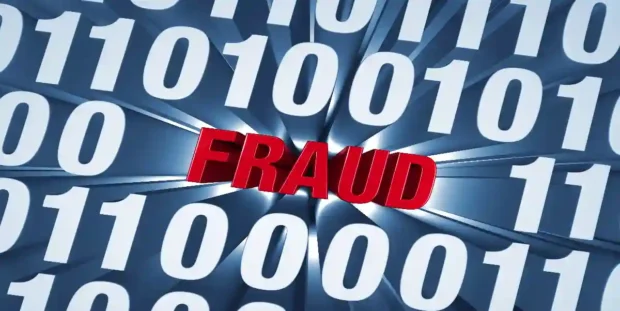Introduction to the DoubleVerify Class Action Lawsuit
The DoubleVerify class action lawsuit seeks to represent purchasers or acquirers of DoubleVerify Holdings, Inc. (NYSE: DV) common stock between November 10, 2023 and February 27, 2025, inclusive (the “Class Period”). Captioned Electrical Workers Pension Fund, Local 103, I.B.E.W. v. DoubleVerify Holdings, Inc., No. 25-cv-04332 (S.D.N.Y.), the DoubleVerify class action lawsuit charges DoubleVerify and certain of DoubleVerify’s top executives with violations of the Securities Exchange Act of 1934.
If you suffered substantial losses and wish to serve as lead plaintiff of the DoubleVerify class action lawsuit, or just have general questions about you rights as a shareholder, please contact attorney Timothy L. Miles of the Law Offices of Timothy L. Miles, at no cost, by calling 855/846-6529 or via e-mail at [email protected].
Lead plaintiff motions for the DoubleVerify class action lawsuit must be filed with the court no later than July 21, 2025.
Read on for answers to the six most frequently asked questions from investors about the DoubleVerify lawsuit.
1. What is the Lead Plaintiff Process Under the PSLRA?
The Lead Plaintiff process under the Private Securities Litigation Reform Act (PSLRA) is a critical component in securities class action lawsuits, such as the DoubleVerify class action lawsuit. The PSLRA was enacted to curb frivolous lawsuits and ensure that genuine claims are handled efficiently and effectively.
When a securities class action is filed, the court invites investors who suffered losses to come forward and express their interest in serving as the lead plaintiff. This role is pivotal because the lead plaintiff represents the interests of all class members and has significant influence over the litigation strategy, including decisions regarding settlements.

To become a lead plaintiff in the DoubleVerify class action lawsuit, interested parties must file a motion with the court within a specified period, typically 60 days from the date the lawsuit is announced.
The court then reviews all motions and selects the most suitable candidate, often prioritizing those with the largest financial interest in the case and demonstrating adequate resources and commitment to oversee the litigation.
The selected lead plaintiff works closely with class counsel to navigate through complex legal proceedings, ensuring that all class members’ interests are vigorously represented.
The PSLRA also mandates that the lead plaintiff must provide certification that they did not purchase securities at the direction of counsel or with the intent to participate in any lawsuit other than seeking redress for their legitimate grievances. This certification helps maintain integrity within the process, reducing the likelihood of abuse or manipulation.
In high-profile cases like the DoubleVerify class action lawsuit, having a competent and committed lead plaintiff is essential for achieving a fair resolution that compensates affected investors appropriately. Thus, understanding and participating in the lead plaintiff process is crucial for any investor seeking justice under securities laws.
2. What Are the Allegations in the DoubleVerify Class Action Lawsuit?
DoubleVerify provides media effectiveness platforms.
- The DoubleVerify lawsuit alleges that defendants throughout the Class Period made false and/or misleading statements and/or failed to disclose that:
- (DoubleVerify’s customers were shifting their ad spending from open exchanges to closed platforms, where DoubleVerify’s technological capabilities were limited and competed directly with native tools provided by platforms like Meta Platforms and Amazon;
- DoubleVerify’s ability to monetize on its Activation Services was limited because the development of its technology for closed platforms was significantly more expensive and time-consuming than disclosed to investors;
- DoubleVerify’s Activation Services in connection with certain closed platforms would take several years to monetize; (iv) DoubleVerify’s competitors were better positioned to incorporate AI into their offerings on closed platforms, which impaired DoubleVerify’s ability to compete effectively and adversely impacted DoubleVerify’s profits;
- DoubleVerify systematically overbilled its customers for ad impressions served to declared bots operating out of known data center server farms; and
- DoubleVerify’s risk disclosures were materially false and misleading because they characterized adverse facts that had already materialized as mere possibilities.
The DoubleVerify class action lawsuit further alleges that on February 28, 2024, DoubleVerify issued lower revenue growth expectations for the first quarter of 2024 due to “a slow start by brand advertisers and a slow ramp by recently signed” customers. On this news, the price of DoubleVerify stock fell more than 21%, according to the complaint.

Then, on May 7, 2024, DoubleVerify cut its full-year 2024 revenue outlook due to customers that were pulling back on their ad spending. On this news, the price of DoubleVerify stock fell nearly 39%, according to the complaint.
The DoubleVerify lawsuit further alleges that on February 27, 2025, DoubleVerify reported lower-than-expected fourth quarter 2024 sales and earnings due in part to reduced customer spending, and defendants further disclosed that the shift of ad dollars from open exchanges to closed platforms was negatively impacting DoubleVerify.
On this news, the price of DoubleVerify stock fell more than 36%, according to the complaint.
3. What Is the Lead Plaintiff Deadline in the DoubleVerify Class Action Lawsuit?
Lead plaintiff motions for the DoubleVerify class action lawsuit must be filed with the court no later than July 21, 2025. When a securities class action is filed:
- The person who files the first complaint is required to publish a notice announcing the filing.
- Anyone who wants to be the lead plaintiff on behalf of the class must thereafter file a motion to be appointed as lead plaintiff(s) no later than 60 days after the notice was published.
4. What Are the Benefits of Serving as a Lead Plaintiff in the Doubleverify Lawsuit?
- Negotiating more competitive attorney fees and reducing litigation costs.
- Managing the litigation by overseeing the progress of the case and reviewing important filings.
- Participating in mediation and settlement discussions.
- Having a voice in decision-making processes regarding the settlement.
- No financial risk, as lead counsel covers all costs and expenses and are paid only if they secure a settlement or judgment recovery for the class
- Potentially enjoying long-term benefits from governance reform resulting from the litigation.
5. What Are the Eligibility Criteria for Lead Plaintiff Appointment in the Doubleverify Class Action Lawsuit?

To be eligible for appointment as the lead plaintiff in the DoubleVerify lawsuit, an investor must meet the following criteria:
- Securities Acquisition: The investor must have purchased or acquired DoubleVerify Holdings, Inc. (NYSE: DV) securities between November 10, 2023 and February 27, 2025.
- Financial Losses: The investor must have suffered financial losses as a direct result of the alleged securities fraud perpetrated by Doubleverify and its executives.
- Typicality and Adequacy: The investor’s legal claims must be typical of those asserted on behalf of the class, and they must demonstrate their ability to adequately represent the interests of the entire class through experience, resources, and the absence of conflicts of interest.
It is crucial to note that both domestic and international investors who meet these criteria are eligible to seek appointment as the lead plaintiff in the class action lawsuit, as courts have consistently recognized the rights of non-U.S. investors in securities class actions.
6. Who is Affected by the Doubleverify Class Action Lawsuit?
The DoubleVerify class action lawsuit primarily affects investors who purchased shares and suffered a loss during the period in which the alleged misconduct occurred. If you invested in Doubleverify during this time, you could be part of the affected class and eligible for compensation if the lawsuit succeeds.

Identifying whether you are part of the affected group is crucial for understanding your rights and potential benefits. The DoubleVerify lawsuit may involve a specific time frame and set of circumstances that define the class of investors who can participate. Knowing these details will help you determine your eligibility and take appropriate action.
In addition to investors, the lawsuit can also impact the company’s executives, board members, and other stakeholders. The outcome of the lawsuit could influence Doubleverify’s reputation, financial stability, and future operations, affecting all parties associated with the company. Staying informed about the lawsuit’s progress is essential for anyone connected to Doubleverify.
Contact Timothy L. Miles Today About an Doubleverify Class Action Lawsuit
If you suffered losses in Doubleverify stock, call us today for a free case evaluation about an DoubleVerify class action lawsuit. 855-846-6529 or [email protected] (24/7/365).
Timothy L. Miles, Esq.
Law Offices of Timothy L. Miles
Tapestry at Brentwood Town Center
300 Centerview Dr. #247
Mailbox #1091
Brentwood,TN 37027
Phone: (855) Tim-MLaw (855-846-6529)
Email: [email protected]
Website: www.classactionlawyertn.com
Facebook Linkedin Pinterest youtube



